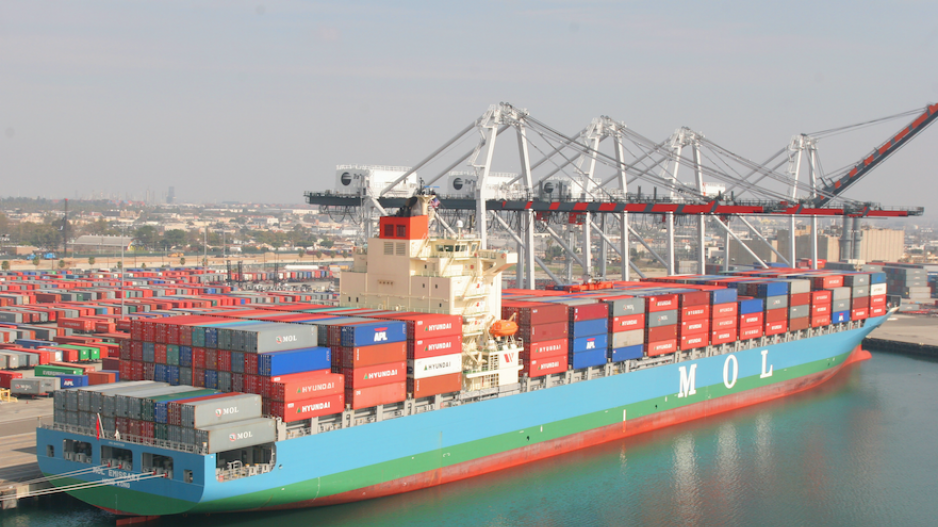The parent company of Vancouver-based Seaspan Corp., the world’s largest lessor of container ships, has agreed to be acquired by Poseidon Acquisition Corp. in an all-cash transaction with an enterprise value of approximately US$10.9 billion.
The Poseidon consortium includes chairman David Sokol, who is also the chairman of the Atlas board of directors, affiliates of the Washington family, affiliates of Fairfax Financial Holdings and Ocean Network Express (ONE) , the world’s sixth largest maritime container shipping company.
Its offer to acquire all outstanding common shares of Atlas Corp. (NYSE:ATCO) not owned by Fairfax, Washington and Sokol for US$15.50 per share was accepted November 2 by the Special Committee of the Board of Atlas, which had rejected Poseidon’s initial offer of US$14.45 per share made on August 4, because “it did not reflect the standalone value of the company.”
Atlas appointed the special committee to consider Poseidon’s acquisition bid.
The revised offer was subsequently tendered on September 28.
"We are pleased to have reached this agreement which, through the combination with Poseidon, introduces Atlas to an important corporate sponsor in the form of ONE," Nicholas Pitts-Tucker, chair of the Special Committee of the Board of Atlas, said in a press release. "The agreement also provides Atlas' minority shareholders with a certain cash outcome due to be paid on closing, subject to the approval of a majority of the minority shareholders."
The global container shipping industry has been on an unprecedented bull run since 2020’s second half and has rolled up profits estimated at close to US$400 billion during that time, a total that, according to U.K.-based shipping consultancy Drewry, exceeds the sector’s entire profits in the 50-plus years of containerization.
However, demand for container shipping has begun to decrease as pandemic restrictions are relaxed and consumers increasingly turn to travel and other services and away from goods.
Drewry noted in a recent report that while container cargo handling grew 6.8 per cent in 2021, it has slowed to a projected 2.3 per cent for 2022. Global container ship port calls, according to Drewry, have also dropped six per cent between the first half of 2019 and the first half of 2022.
Still, Atlas management remains optimistic about the future of Seaspan and the container shipping sector.
In a statement, Bing Chen, president and CEO of Atlas Corp., said, "As we look at the industry's trajectory, we believe the financial, operational and strategic flexibility we will gain as a privately held company with this group of owners and investors will position Atlas, our employees and customers for greater opportunity
Atlas has a current market cap of US$3.5 billion.
Third-quarter 2022 revenue for Atlas was US$439.6 million, a 2.7 per cent decrease from 2012’s third quarter.
Adjusted EBITDA was US$291 million, which was 9.7 per cent lower compared with 2021’s third quarter; Seaspan generated US$255 million of the Atlas third-quarter EBITDA.
Seaspan’s operating containership fleet has grown to 134 ships from zero in 2001. It also has 67 ships under construction and will have a working fleet of 201 ships with a total carrying capacity of 1.95 million 20-foot equivalent units (TEUs) when Seaspan’s newbuilds are delivered.
It celebrated its 20th anniversary late last year with third-quarter financials that included profit up 31 per cent to US$256 million compared with the same quarter in 2020.
The Poseidon acquisition deal is expected to close in the first half of 2023.
[email protected]
@timothyrenshaw




